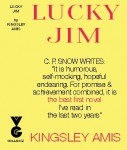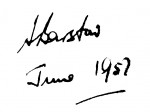When I was still a teenager, in search of cheap thrills (as I hoped and expected), I bought a Penguin paperback edition of Stan Barstow’s novel A Kind of Loving (1960). I remember enjoying it – but not for the sexy bits, which were few and far between and in their depiction of youthful callowness a bit too close to home to be either educative or erotic.
The film directed by John Schlesinger came out soon afterwards. The sexy bits in this were a bit more explicit (though not much more). I was interested to see that many of the exterior shots were filmed in Stockport, a depressing post-industrial town close to where I lived as a child. For some reason the Luftwaffe had failed to flatten Stockport, so its terraced slums and empty mills and former factories remained standing until at least the early 1960s. IMDb describes some of the filming locations as ‘Greater Manchester’, which I think now includes Stockport. I’m certain that the final scenes in the film were shot in a place called Gas Lane, next to the gasworks and close to Mersey Square in the centre of the town, which even in the context of Stockport’s neglected Victorian areas was picturesquely decrepit.
(I suppose I should add that since those days Stockport’s slums and horrible old gasworks have all been demolished, and it has no doubt become a lovely place to live.)
Stan Barstow, a good writer if somewhat neglected these days, was one of those post-war novelists dubbed by the press ‘angry young men’. They were the immediate literary context in which I began writing: I read several of the books then current, by John  Braine, Alan Sillitoe, Keith Waterhouse, David Storey and, of course, Kingsley Amis. His novel Lucky Jim (1954) is often said to have started that particular literary genre, even though it is different in tone from all the others, and a distinct cut above them. Although it is by far Amis’s best-known novel, and probably brought him more money than any of his others, it is not in my view his best. Some of his later novels are written more subtly (unsurprisingly), and in many cases are much funnier and their satire is more effective. However, it remains a favourite from that period.
Braine, Alan Sillitoe, Keith Waterhouse, David Storey and, of course, Kingsley Amis. His novel Lucky Jim (1954) is often said to have started that particular literary genre, even though it is different in tone from all the others, and a distinct cut above them. Although it is by far Amis’s best-known novel, and probably brought him more money than any of his others, it is not in my view his best. Some of his later novels are written more subtly (unsurprisingly), and in many cases are much funnier and their satire is more effective. However, it remains a favourite from that period.
The other day I bought a secondhand hardback of Lucky Jim on the internet. Not a collector’s item in the  usual sense (it is from the twelfth impression, printed fifteen months after the first edition), but a nice copy in undamaged binding. I was pleased to find it. I was even more pleased when it arrived in the mail: from the inscription inside the front cover it turns out to have been Stan Barstow’s own copy.
usual sense (it is from the twelfth impression, printed fifteen months after the first edition), but a nice copy in undamaged binding. I was pleased to find it. I was even more pleased when it arrived in the mail: from the inscription inside the front cover it turns out to have been Stan Barstow’s own copy.
Everything joins up in the end.